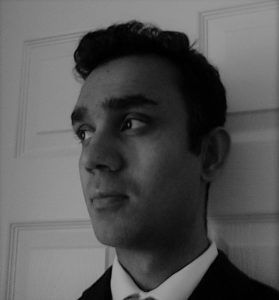 On the trail of interesting City alumni, Christianah Babajide, one of Lawbore’s legal journalists caught up with former City BPTC star student and Future Pupil Barrister at the chambers of 29 Bedford Row (Chambers of Philip Cayford QC), Gayan Samarasinghe.
On the trail of interesting City alumni, Christianah Babajide, one of Lawbore’s legal journalists caught up with former City BPTC star student and Future Pupil Barrister at the chambers of 29 Bedford Row (Chambers of Philip Cayford QC), Gayan Samarasinghe.
Gayan completed his BPTC at City, University of London. During his studies, he volunteered (on behalf of parents and children) at the Independent Parental Special Education Service (IPSEA) as a Tribunal Representative. In between other legal internships and mini pupillages, he secured a paralegal role at magic-circle giant Linklaters and pupillage offer from 29 Bedford Row which commenced in October 2017.
He is the proud winner of several competitions, including the Allen & Overy Debating Competition (2010), the Inner Temple Pepperdine Moot (2014), and the Inter- Inn Debating Competition (2016). He also received Exhibition and Duke of Edinburgh Awards from Inner Temple to fund his BPTC. In this exclusive interview with Lawbore, he kindly shares his nuggets of wisdom when it comes to pupillage applications and answers a few questions related to the journey he made to secure a pupillage.
Can you start off by telling us about your BPTC experience at City?
I studied for my BPTC while working, with a very bright group of fellow part-time students. I particularly enjoyed my advocacy seminars.
What attracted you to a career at the Bar?
The fact that the Bar is a profession which requires you to think on your feet, be good with words, learn continuously, and on top of that, gives you a great deal of independence.
How did you build experience in preparation for your pupillage applications?
 I gained a lot of valuable experience working as a paralegal. My former supervisor, Dr Laura Lanes is an expert in her field, which meant that I got to work on many interesting cases which encompassed public law, criminal law, mental health law, privacy, and many legal issues surrounding the rights of the child. I also did a lot of pro-bono work. One of the organisations I continue to volunteer for is IPSEA, on whose behalf I represent parents of children with special educational needs at the First-tier Tribunal.
I gained a lot of valuable experience working as a paralegal. My former supervisor, Dr Laura Lanes is an expert in her field, which meant that I got to work on many interesting cases which encompassed public law, criminal law, mental health law, privacy, and many legal issues surrounding the rights of the child. I also did a lot of pro-bono work. One of the organisations I continue to volunteer for is IPSEA, on whose behalf I represent parents of children with special educational needs at the First-tier Tribunal.
How did you decide which chambers to apply to?
I thought carefully about what I was interested in, which area of law was a good fit for me, and then applied to the strongest sets. 29 Bedford Row do fantastic work across the full range of family law cases, so I was very happy to have received an offer from them.
How did you find the selection process?
A friend of mine was getting married in the Netherlands just before the pupillage gateway was about to close, and I had a rushed few hours before my flight, finalising my written applications. The interview stage was a lot of fun – particularly the mini debates you would typically have in family law interviews around a recent news item. For one set of chambers, I remember my interview overran because each member of the panel was so keen to have their say in relation to the political position I had been asked to argue.
How did you prepare for pupillage interviews?
I had worked for several years before completing the BPTC, so an important aspect of my interview preparation was going over my CV carefully to ensure I would not be thrown off by a question about something I had done and since largely forgotten. It can be something unexpected which makes an impression on the panel. For instance, I had flirted with the idea of a career in journalism years ago, and in almost every interview, I was asked about an investigative piece I had written at the time for Private Eye.
You were heavily involved in Debating; winning various inter-inn competitions, including the Allen & Overy 2010 debate – how has this experience helped furthered your law career?
 Debating was something that did not take up too much of my time as most debates give only fifteen minutes’ notice of the motion being argued. You would usually spend more time having a drink with your sparring partners after the debate than you spent either preparing or speaking.
Debating was something that did not take up too much of my time as most debates give only fifteen minutes’ notice of the motion being argued. You would usually spend more time having a drink with your sparring partners after the debate than you spent either preparing or speaking.
I think for the time invested, however, the return is high. The skills needed to become a good debater – a curiosity and interest in the world and ideas around you, a thick skin, an ability to reflect on your own advocacy to identify what works, – those are also skills that it can’t hurt to have if you want to be a barrister. I know a number of debaters who have secured very good pupillages.
Apart from English, you speak French, Arabic and Russian, did being bilingual offer you a competitive edge?
I should say that I am confident with my French but for the moment, my other languages are only at the intermediate level. I hope that my language skills do give me an edge when I apply for jobs but I would be motivated to develop them regardless, because languages add hugely to my experiences when I travel, as well as to my enjoyment of literature. There have been a few occasions where I have used them at work. I once worked with an Arabic client who did not want to wait for an interpreter, and my French came in useful while I did some commercial work in a magic circle firm. I would certainly like to work on cases with a foreign element at the Bar.
In your opinion, what is the secret to making a strong pupillage application?
Start completing an application form as early as possible – as soon as you know you want to be a barrister, ideally. That’s the best way to identify the skills and experiences you may be lacking in and which you can address well before the application process starts.
Finally, what advice would you give to aspiring barristers currently looking for pupillages?
Remember that luck, circumstances, and the competitiveness of the area of law you are going for also play a role in whether you get an offer. Don’t be disheartened if you don’t get pupillage in any given round, but also make sure you have a plan B.
Quick fire questions:
- Favourite legal drama? ‘Consent’ by Nina Raine.
- Lucky charm or pre-interview ritual? Getting to wherever I have to be early.
- Fun fact about you? I have a faint childhood scar over my left eyebrow. In the wrong light, it can give the impression that I left a promising career in a 90s boyband for the Bar.
Many thanks to Gayan for this insightful interview & to Christianah for her questions! You can connect with Gayan via LinkedIn.
Further reading:

